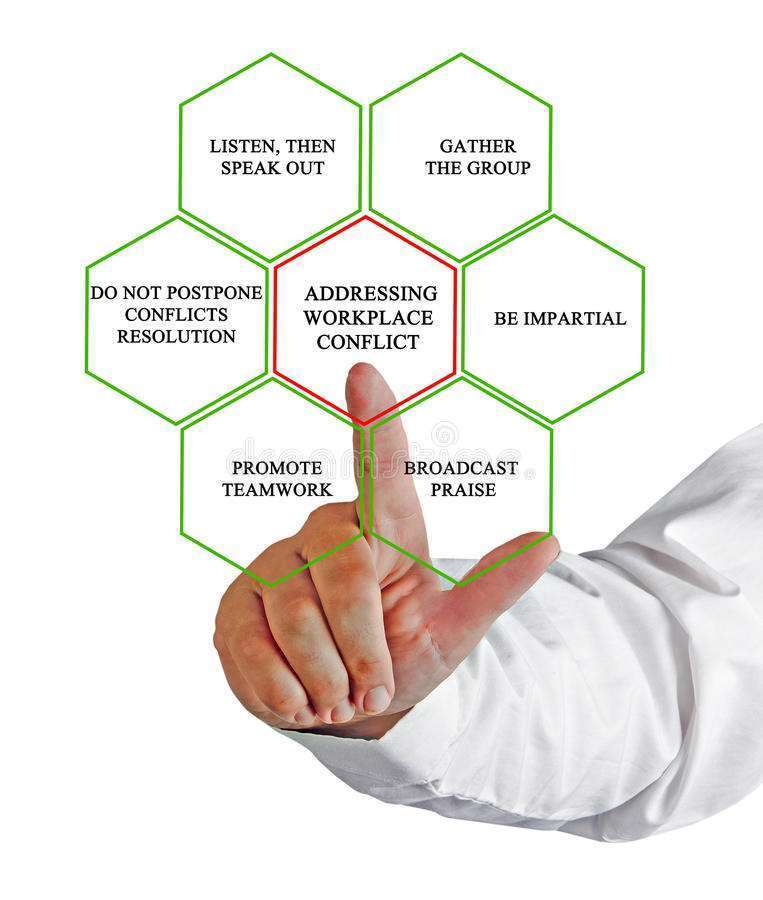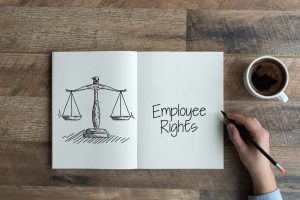
General protections and adverse action
What does it mean?
The General Protections provisions are set out in Part 3-1 of the Fair Work Act 2009 (Cth). Under the Fair Work Act 2009 (Cth). Employers are prohibited from taking adverse action against an employee because of a workplace right or industrial activities. This protects against discriminatory treatment on the basis of protected attributes and sham arrangements. General Protections and Adverse Action, are sometimes intertwined and can be confusing.
The meaning of the term ‘adverse action’ depends on the relationship between the people involved. In respect of action taken by an employer against an employee. ‘adverse action’ means dismissing them, injuring them in their employment, altering their position to their prejudice, or discriminating between them and other employees.
Employees have workplace rights
Under the Fair Work Act 2009 (Cth). A person has a workplace right if they are entitled to the benefit of a workplace law or instrument. In turn has a role or responsibility under a workplace law or instrument. They are able to initiate or participate in a process or proceedings under a workplace law or instrument. Is able to make a complaint or inquiry to seek compliance with a workplace law or instrument. Thus, an employee can make a complaint about bullying and the employer is prohibited from taking any adverse action, such as dismissed them, because of their complaint.
Employee has a workplace right not to be discrimination against
Further, an employee has a workplace right not to be discrimination against. Thus the employer is prohibited from taking any adverse action because of a person’s protected attribute. This includes the person’s race, colour, sex, sexual preference, age, physical or mental disability, marital status, family. Carer’s responsibilities, pregnancy, religion, political opinion, national extraction or social origin.

Protection against temporary absence
Under the Fair Work Act 2009 (Cth). An employee is also protected against dismissal only for temporary absence in their employment due to illness or injury. An employer must not dismiss an employee because the employee is temporarily absent from work due to illness or injury of any kind.
However, the employee will not be protected if the employee’s absence extends for more than 3 months. The total absences of the employee, within a 12-month period, have been more than 3 months collectively. And the employee is not on paid personal or Carer’s leave for the duration of the absence.
If you feel your employer has acted adversely towards you because of a protected attribute or because of your complaints. Please give us a call on 1800 333 666 for a free and confidential consultation.
Types of General Protections Claims
In the Fair work Commission, there are two different General Protections applications which can be lodged. This depends on the status of your employment. If an employer has dismissed an employee and they believe this action was done because of their workplace right or exercise of workplace right. The employee has 21 calendar days after the dismissal took effect, to lodge an application in the Fair work Commission.
If an employee can demonstrate that the employer is acting adversely towards them, but has not dismissed them, and this is a result of the employee exercising their workplace rights. The employee can lodge an Form 8C Application. Adverse action in this context can include injuring the employee in their employment. Altering the position of the employee to the employee’s prejudice. Discriminating between the employee and other employees of the employer.

F8C application
Through an F8C Application, the employee can attempt to resolve the issues they are experiencing at work and potentially restore the employment relationship. However, if an employee does not wish to continue their employment given what has occurred, the employee can see an exit package, by way of resignation, to terminate the employment relationship. The employee can also seek monetary compensation for economic loss and non-economic loss in the form of general damages for hurt, distress and humiliation.
General Protections and the Causative Link – “Because of”
One of the most frequent reasons that an applicant fails in a general protections case is that he or she is held to have failed to establish an arguable case to the effect that the adverse action complained of (such as dismissal) was taken for a prohibited reason, because of a protected attribute or because of the employee’s complaints. The General Protections provisions are very narrow and they require the causative link to be made out, in order for an employee to be successful.

Employee was given a warning
In Hammond v Boutique Kitchens & Joinery Pty Ltd, an employee was given a warning. Following the warning, the employee was upset and she visited her doctor to obtain a medical certificate for stress leave. Later that same day she was dismissed. The employee claimed her dismissal was a breach of s 352, which prohibits an employer from dismissing an employee ‘because the employee is temporarily absent from work because of illness or injury’.
Without the causal link, there was no breach
However, the employee did not allege that she was dismissed because she was on sick leave – she believed that the dismissal while she was on sick leave was enough to constitute a breach. The Federal Magistrates’ Court dismissed her claim, finding that without the causal link, there was no breach of the General Protections provisions.
What if a prohibited reason was one of a number of factors the employer considered? If the employee was dismissed because of particular conduct, which was related to his or her protected attribute? How far does the causal link go?

The Presumption and Onus Enactments
In order to help define the casual link, the Fair Work Act 2009 (Cth). Provides that ‘a person takes action for a particular reason if the reasons for the action include that reason’. The effect of this section is that the proscribed reason for the impugned conduct need not be the sole or dominant reason, but must comprise a ‘substantial and operative factor.
Secondly, the legislation includes a reverse onus in relation to the reasons for taking an action. This means that although the employee must still establish that they have a prescribed ground. Have suffered adverse action within the meaning of the legislation, once the employee alleges their employer took action for a particular reason, it is presumed that the employer’s action was taken for that reason unless the employer proves otherwise. The employee is relieved of the burden of proving the employer’s reason for taking an action.
Considerations for Establishing the Causative Link
In Board of Bendigo Regional TAFE v Barclay. The High Court observed that the Parliament intended these two legislative enactments to provide a balance between the parties to a workplace dispute by, first, establishing a presumption in favor of an employee who alleges that an employer had taken, or is taking, adverse action against him or her because of a particular circumstance or fact of the kind specified in any of ss 340, 346, 351 or 354. Secondly, enabling the employer to rebut that presumption.
An important presumption and onus that these sections create are necessary because the employee cannot know or prove what was in the decision-maker’s mind when he or she took the adverse action. The court must enquire into, and make findings about, the mental processes of the decision-maker for taking the adverse action complained of.

The Employer must prove, that none of his or her reasons for that action included as a substantial and operative factor
Accordingly, the employer or decision-maker acting on its behalf who took the alleged adverse action must prove, as a fact, that none of his or her reasons for that action included as a substantial and operative factor any reason or intent that the Act proscribed him or her from having. As French CJ and Crennan J held, the Court must determine the question of fact, namely “why was the adverse action taken?”.
Further, there must be more than a mere temporal connection between the adverse action and alleged proscribed reason. Direct evidence of the employer or decision-maker is generally required to rebut the presumption. An express denial will not usually suffice, particularly where contradictory evidence/other facts proven. Where direct evidence of decision-maker not given, or not given on the reasons for termination, the statutory presumption has in the past been found not rebutted.

General Protections and Adverse Action, Initiating a General Protections Claim
As independent workplace advisors, (we are not lawyers) we can provide representation in your general protections claim. If your looking for a lawyer, give us a call first, fixed fees or no win, no fee. We can advise you as to whether you have an arguable case and lodge the application on your behalf. Once an application is lodged, the Fair Work Commission will set the matter down for a conciliation conference, a private proceeding conducted by an independent conciliator.
This conference is an informal method of resolving a General Protections dispute in which an independent conciliator will assist the parties in exploring options for resolution. Help them to reach an agreement without the need for a formal hearing or court proceedings.
Conclusion to “General Protections and Adverse Action”,
I hope you enjoyed this article, its comprehensive, this area of the Fair work Act can be very complex. If you are unsure whether you have a claim, please give us a call on 1800 333 666 for a free and confidential consultation. Sacked?, dismissed?, discriminated against?, bullied?, harassed? Excised a workplace right? Not sure what to do next? Make the call, its free. Nothing to lose and everything to gain. We do both no win, no fee work and paid work, we are happy to discuss your options.
Fair work Australia, Fair work Commission matters including, abandonment of employment, serious misconduct, probation, redundancy, anything to do with the workplace and employee rights. We work in all states, including Victoria, NSW, QLD

Articles similar to “general protections and adverse action”
General protections bullied sbs journalist loses case
Employer says kill threat is his cultural right






